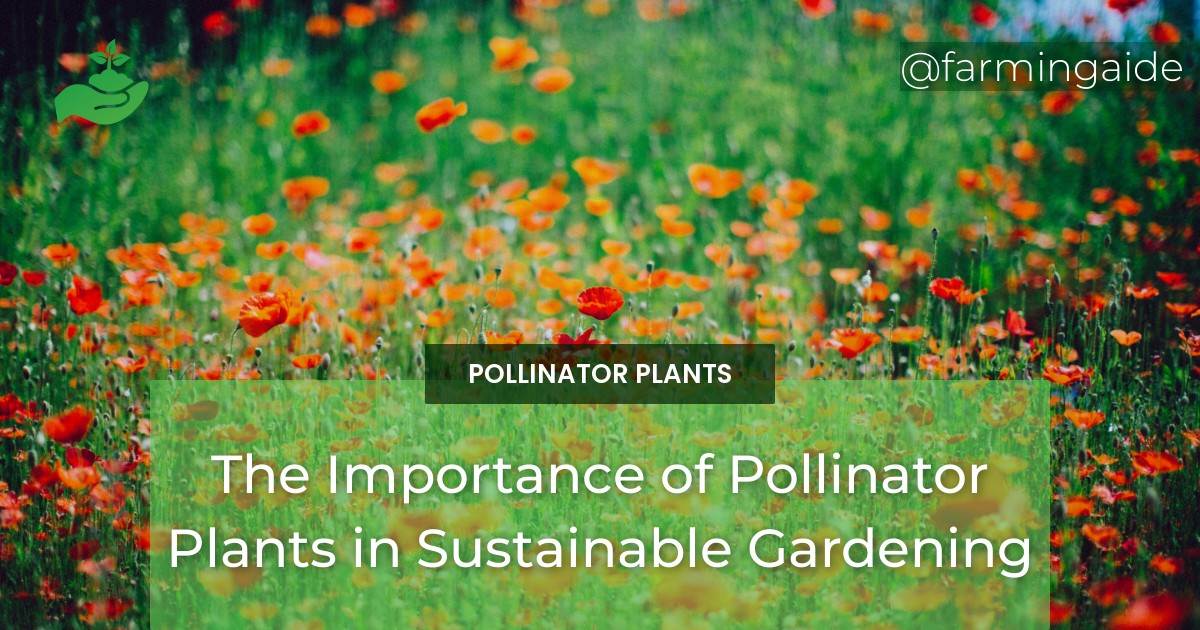The Role of Pollinator Plants in Supporting Healthy Ecosystems and Biodiversity
Pollinator plants are essential to supporting healthy ecosystems and promoting biodiversity. These plants are an integral part of the food web, serving as a source of food and shelter for a wide range of pollinators, including bees, butterflies, birds, and bats. In addition to their ecological importance, pollinator plants also offer a range of benefits for gardeners and homeowners. In this article, we’ll explore the importance of pollinator plants in sustainable gardening, the role of pollinators in supporting healthy ecosystems, and how to attract pollinators to your garden.What are Pollinator Plants?
Pollinator plants are plants that attract and provide resources for pollinators. These plants produce flowers that provide nectar, pollen, and other resources that pollinators need to survive. Pollinators, in turn, help the plants reproduce by transferring pollen from flower to flower. Pollinator plants can be annuals, perennials, trees, shrubs, or even weeds. Some common pollinator plants include:- Wildflowers and native plants
- Fruit trees
- Berries
- Herbs
- Vegetables
Benefits of Pollinator Plants in the Garden
There are many benefits to planting pollinator plants in your garden, including:- Increased fruit and vegetable yields
- Improved plant health and vigor
- Reduced pest problems
- Increased beauty and biodiversity
The Importance of Pollinators
Pollinators are essential to the health of ecosystems and the production of many of the foods we eat. Pollinators include bees, butterflies, moths, flies, beetles, birds, and bats. These animals transfer pollen from flower to flower, allowing plants to reproduce and produce fruit and seeds. Without pollinators, many of our favorite foods would disappear from the grocery store shelves, including fruits, vegetables, and nuts.The Threats to Pollinators
Despite their importance, pollinators are facing numerous threats, including habitat loss, pesticide use, disease, and climate change. In recent years, many pollinator populations have declined, with some species facing the threat of extinction. It’s up to all of us to protect and support pollinators by providing habitat, reducing pesticide use, and planting pollinator-friendly gardens.How to Attract Pollinators to Your Garden
Attracting pollinators to your garden is easy and can be done in a few simple steps.Choosing the Right Pollinator Plants
When choosing pollinator plants for your garden, it’s important to select plants that are native to your area and that bloom at different times throughout the growing season. This will ensure that pollinators have a constant source of food and shelter throughout the year. Some good choices for pollinator plants include:- Milkweed
- Lavender
- Coneflower
- Goldenrod
- Black-eyed Susan
Garden Design for Pollinators
In addition to choosing the right plants, it’s important to design your garden with pollinators in mind. Here are a few tips to get you started:- Plant flowers in clusters to make it easier for pollinators to find them
- Include a variety of flower shapes and colors to attract different types of pollinators
- Provide nesting sites and shelter for pollinators, such as bee hotels, bird houses, and bat boxes
- Reduce pesticide use and provide alternative pest control methods
The Benefits of Sustainable Gardening with Pollinator Plants
Sustainable gardening with pollinator plants offers a range of benefits for the environment and for gardeners themselves.Reduced Environmental Impact of Sustainable Gardening
Sustainable gardening practices reduce the environmental impact of gardening by conserving water, reducing chemical use, and promoting biodiversity. By planting pollinator plants, gardeners can support healthy ecosystems and reduce the need for pesticides and fertilizers.Promoting Biodiversity with Pollinator Plants
Pollinator plants promote biodiversity by providing food and shelter for a wide range of pollinators. By planting a variety of pollinator plants, gardeners can support a diverse range of pollinator species and help protect them from threats such as habitat loss and pesticide use.Conclusion
In conclusion, pollinator plants are an essential part of sustainable gardening and the health of ecosystems worldwide. By understanding the role of pollinators and how to attract them to your garden, you can help protect these vital species and promote biodiversity in your own backyard. Remember to choose the right pollinator plants, design your garden with pollinators in mind, and reduce your environmental impact through sustainable gardening practices. With these tips in mind, you can enjoy a beautiful, productive, and sustainable garden that supports pollinators and the environment.ALSO READ


